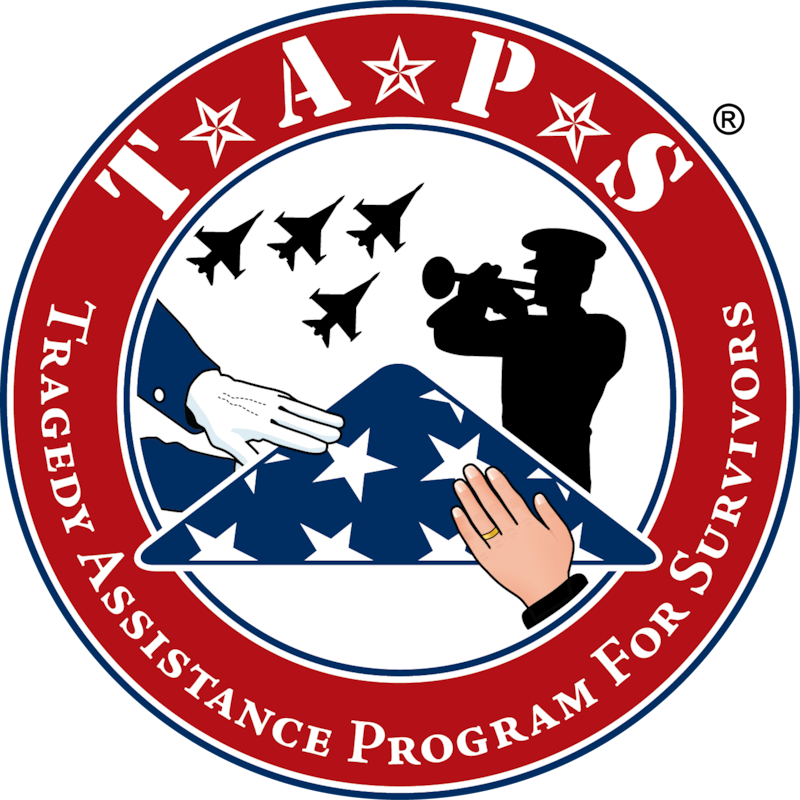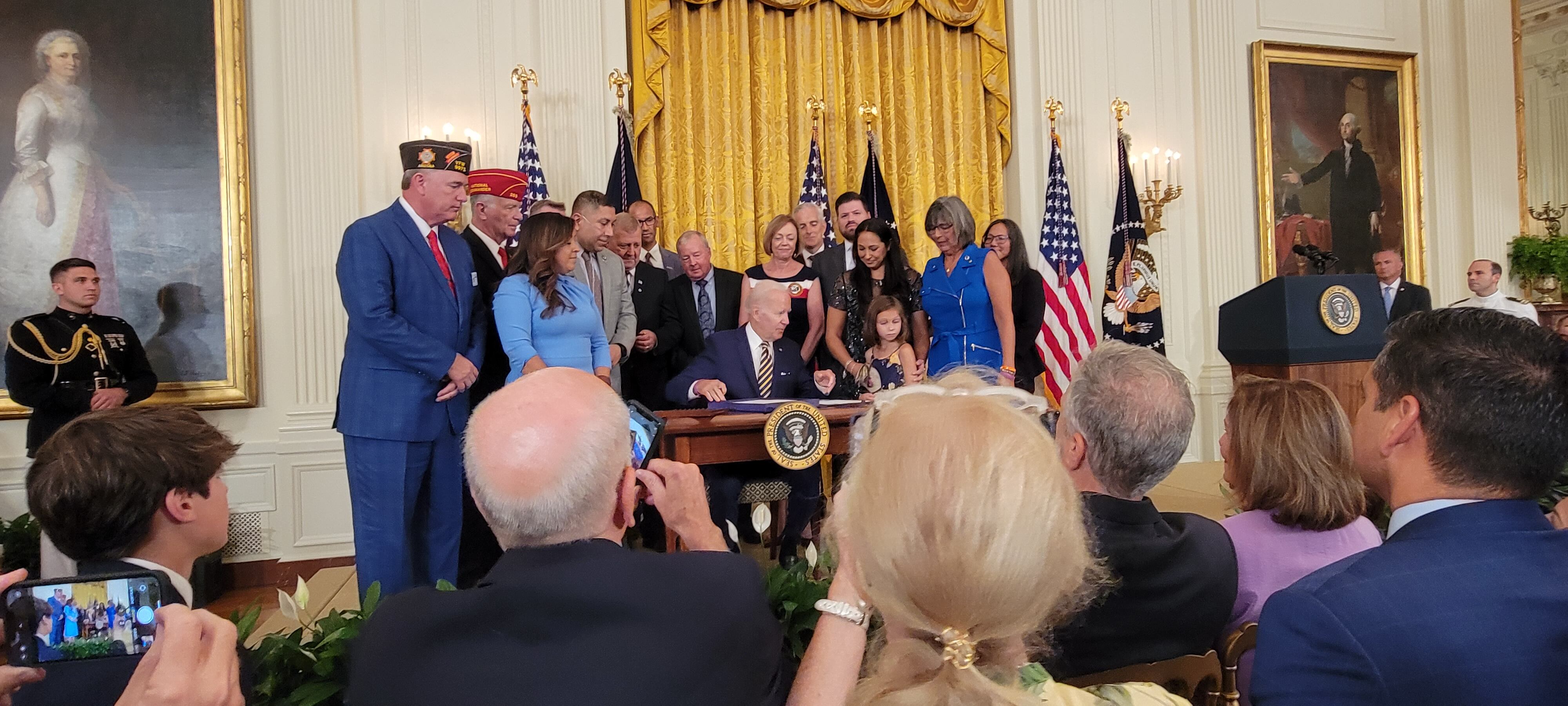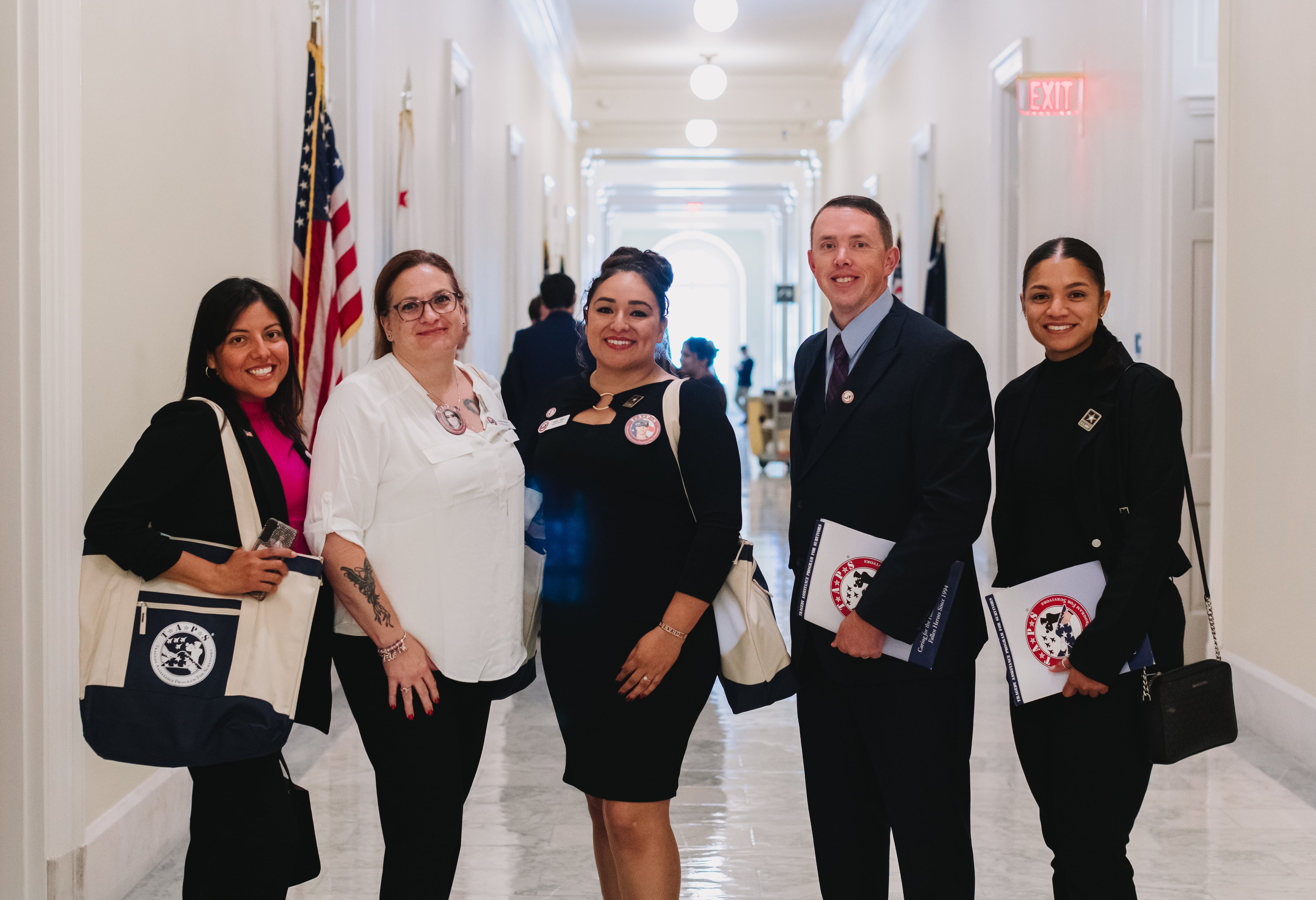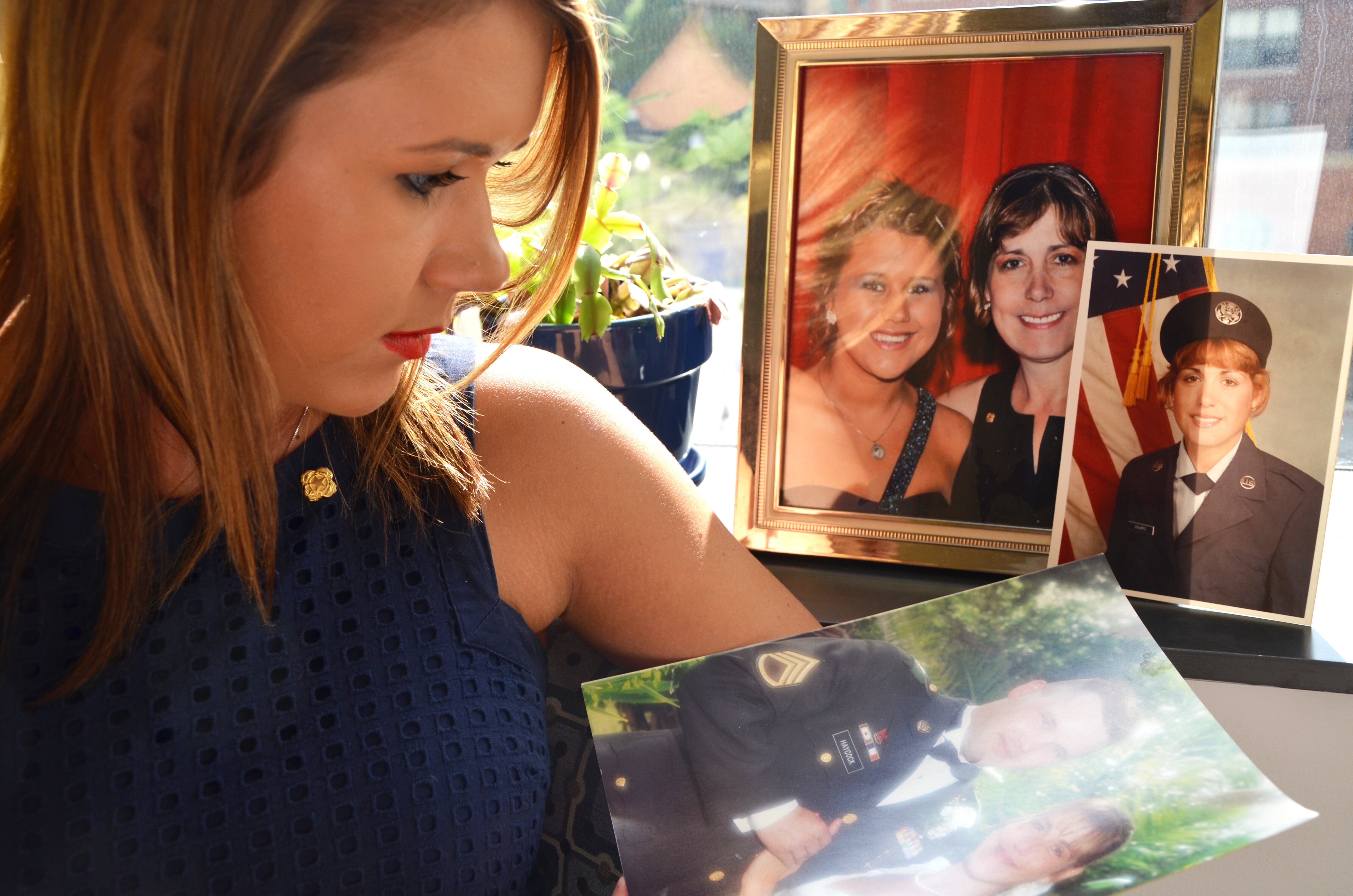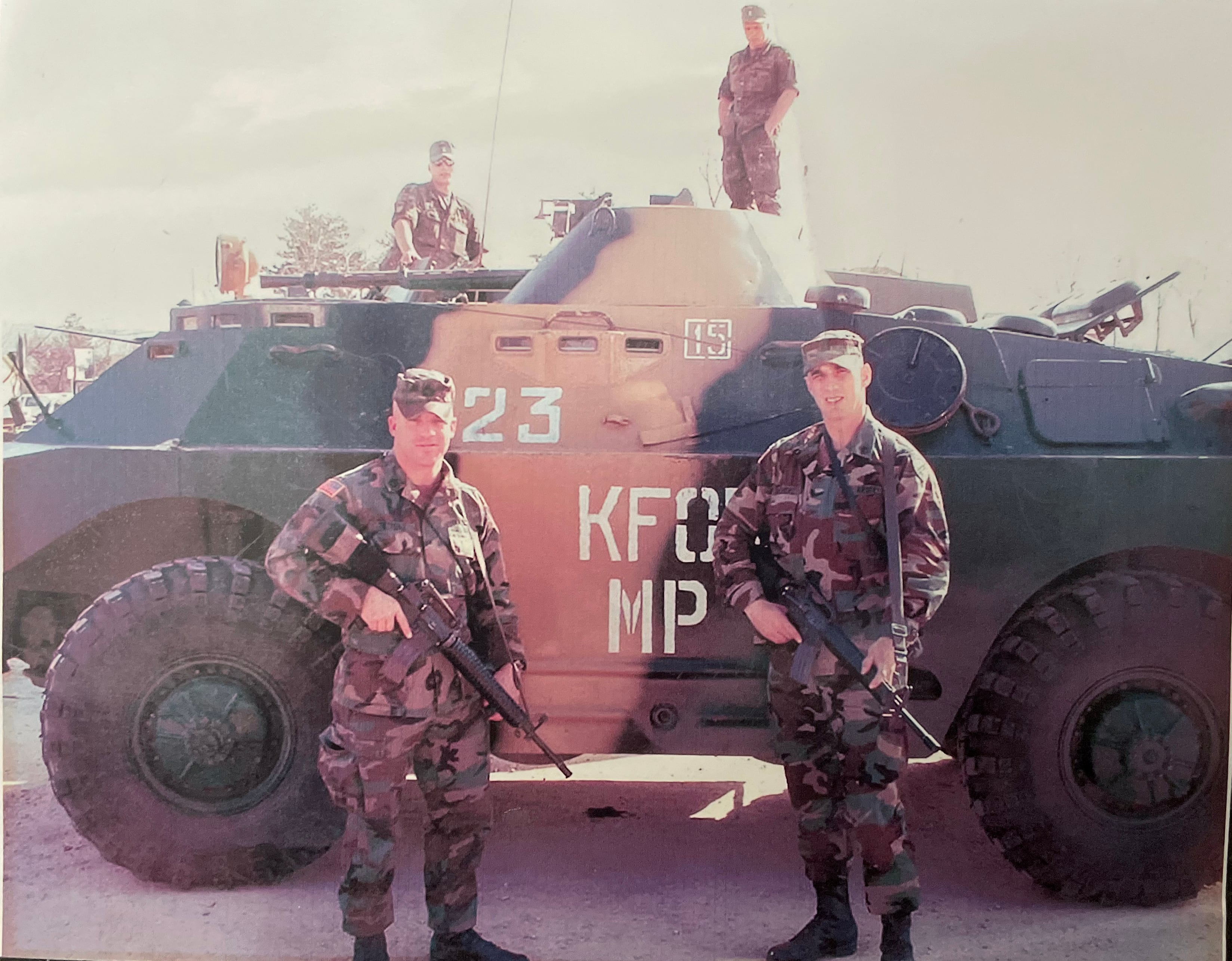Beginning more than 10 years ago, military-connected survivors Alice Daniel, Coleen Bowman, and Danielle Robinson began to speak out with their stories of loss as a result of their loved one’s exposure to toxins while deployed. While each story is unique, the uphill battles for medical care, benefits, and answers are recurring themes. Their voices, along with countless others who bravely advocated for their heroes, were powerful forces that led to the Aug. 2, 2022, passage of the Sergeant First Class Heath Robinson Honoring Our Promise to Address Comprehensive Toxics Act of 2022, or PACT Act.
This historic law ensures that over 3.5 million veterans of multiple generations who were exposed to burn pits, toxins, and airborne hazards while deployed are eligible to apply for immediate, lifelong access to the Department of Veterans Affairs (VA) health care and benefits for their families, caregivers, and survivors.
Today, the VA estimates that there are over 382,000 potential survivors who may be eligible for PACT Act-related benefits. In 2022 alone, nearly 9,000 newly bereaved military survivors came to the Tragedy Assistance Program for Survivors, or TAPS, for care. Thirty percent were grieving the death of a loved one due to illness — surpassing all other circumstances of death, including hostile action.
For years, TAPS has listened to stories of illness-loss survivors and given them a platform to elevate their voices. Each shared story helped TAPS shed light on the darkness of precious time lost, misdiagnoses, and a battle no one saw coming.
With like-minded veteran and military service organizations, TAPS became a founding member of the Toxic Exposure in the American Military (TEAM) Coalition. The TAPS Government and Legislative Affairs team worked with Members of Congress, congressional leaders, the Biden Administration, the VA, more than 60 veteran and military organizations, and veteran and survivor advocates — including Jon Stewart and John Feal — to ensure the passage of the PACT Act.
On Aug. 2, 2022, TAPS Director of Government and Legislative Affairs Candace Wheeler sat in the Senate gallery, shoulder-to-shoulder with fellow toxic-exposure advocates as each senator walked across the floor of the historic Senate Chamber to cast their vote, and on Aug. 10, 2022, she watched President Biden sign the PACT Act into law.
This historic legislation and the wave of change that followed would not have been possible without the surviving families who courageously shared their stories — the grieving hearts that found purpose in advocating for the families that would follow them. Because of them, other families will have hope instead of darkness, and lives will be saved.
The passage of the PACT Act is a victory, but the work does not stop. Illness loss is now the leading cause of military death. Each year, more survivors whose loved ones died due to toxic-exposure illness connect with TAPS for grief support and help navigating their benefits. TAPS remains committed to promoting a better-shared understanding of illnesses that may result from exposure to toxins and ensuring survivors of illness loss receive the benefits they deserve. That is why TAPS is working with the VA to encourage toxic-exposed veterans and survivors to file a claim for PACT Act-related benefits or apply for VA health care. Our shared mission is a promise kept to the men and women who served this nation and the families-turned-caregivers behind them.
Veterans and survivors can file PACT Act claims or apply for benefits by visiting va.gov/pact. Surviving families in need of casework assistance should call 800-959-TAPS (8277) or email casework@taps.org.
“As a nation, it is our moral obligation to care for our veterans, their families, caregivers, and survivors. With the passage of the historic PACT Act, we have finally kept that sacred promise.”
— Candace Wheeler, Director of Government and Legislative Affairs, TAPS
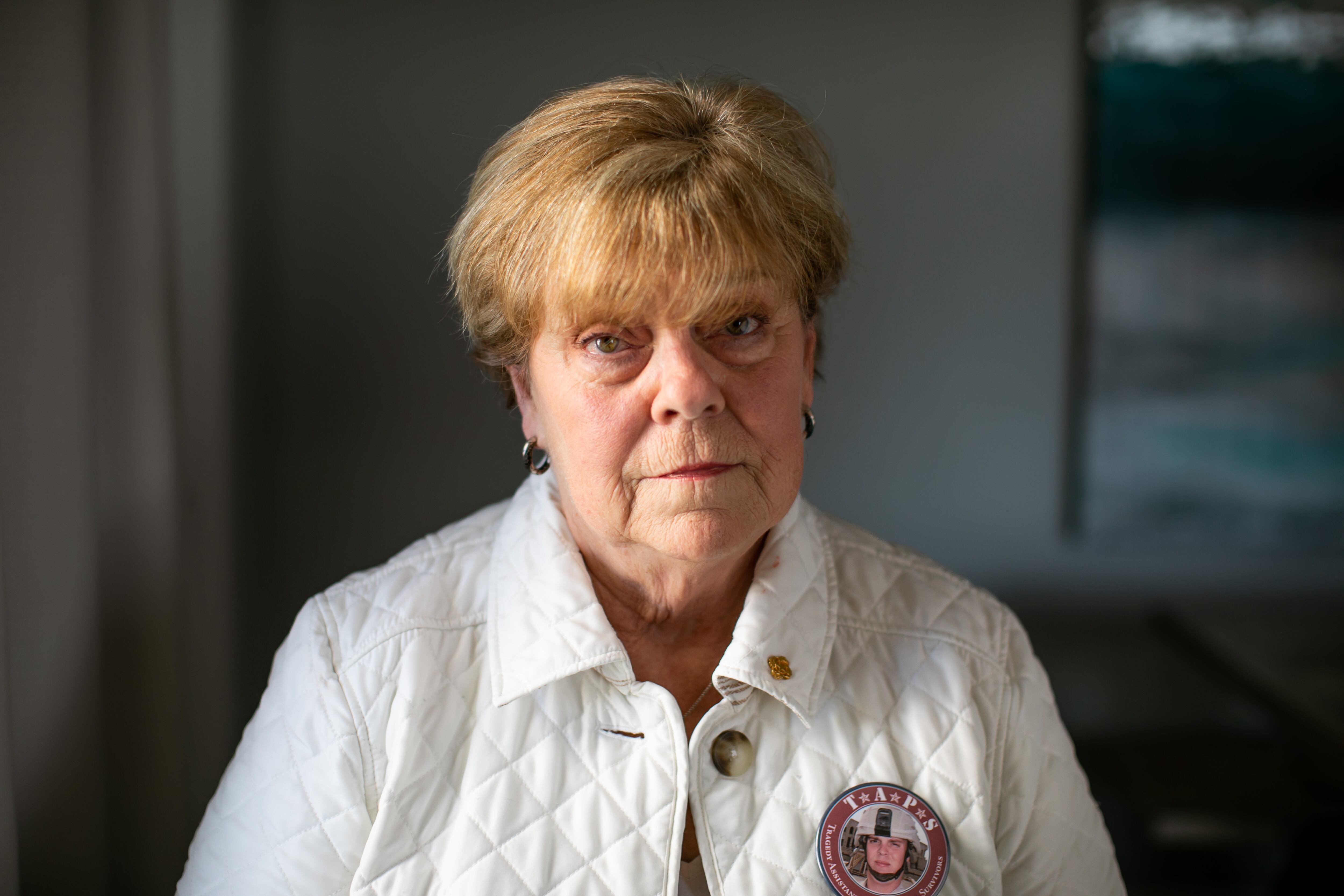
Alice Daniel, Surviving Mother of SSG William Austin Daniel, U.S. Army, Louisiana National Guard
A mother doesn’t forget the first time her child calls out for her. That sweet voice imprints on her heart forever. A cry from the comfort of a crib, a tear-streaked “Mom!” from beside a downed bicycle as he clutches a skinned knee — no matter. She will run to him and do everything in her power — despite the obstacles — to protect her child, stop the hurt, calm the fears.
Some mothers — the mothers who have to face the untimely death of their child — never forget the last time that same sweet voice calls out to her. SSG William Austin Daniel called out to his mother, Alice Daniel, for the final time on Sept. 7, 2009, from his hospital bed, “Mom, what’s happening to me?”
Before she could stop his pain or calm his fears, he was gone. Alice’s heart broke; she couldn’t protect Austin this time. She couldn’t rewind the clock and hear his voice just one more time. She couldn’t undo what the burn pits in Iraq set into motion years ago.
Austin was only 33 years old when he lost his nearly year-long battle with cancer. He was Alice’s oldest son. He had a beautiful wife and a daughter who looks just like her dad. He survived a deployment to Camp Victory in Baghdad, Iraq, with the 256th Infantry Brigade despite Alice’s mounting fear each time she heard news of yet another roadside bomb, or the time she heard mortars for herself in the background of a call with Austin. Spared from each of these obvious dangers, it was something quiet, in the end, that took her son — toxic exposure from Camp Victory’s burn pits. It was something so quiet that Austin’s doctors didn’t suspect toxic exposure. How could Alice have known?
It was in November of 2008 when Austin was diagnosed with Hodgkin’s Disease. Alice remembers being shocked, betrayed by the safety she thought blanketed her family. After all, not one, but two of her sons made it back home to her after their deployments. Life for them and for her — the mother carefully watching over her boys — was normal now with marriages, grandbabies, and jobs without IEDs and bullets. When she least expected it, a presumed genetic defect — a fluke — had taken her precious son away from her, away from his wife, away from his daughter.
Alice’s life without Austin was a little darker. She smiled less; Austin was good at making her smile. She was angry. She searched for the why in her grief.
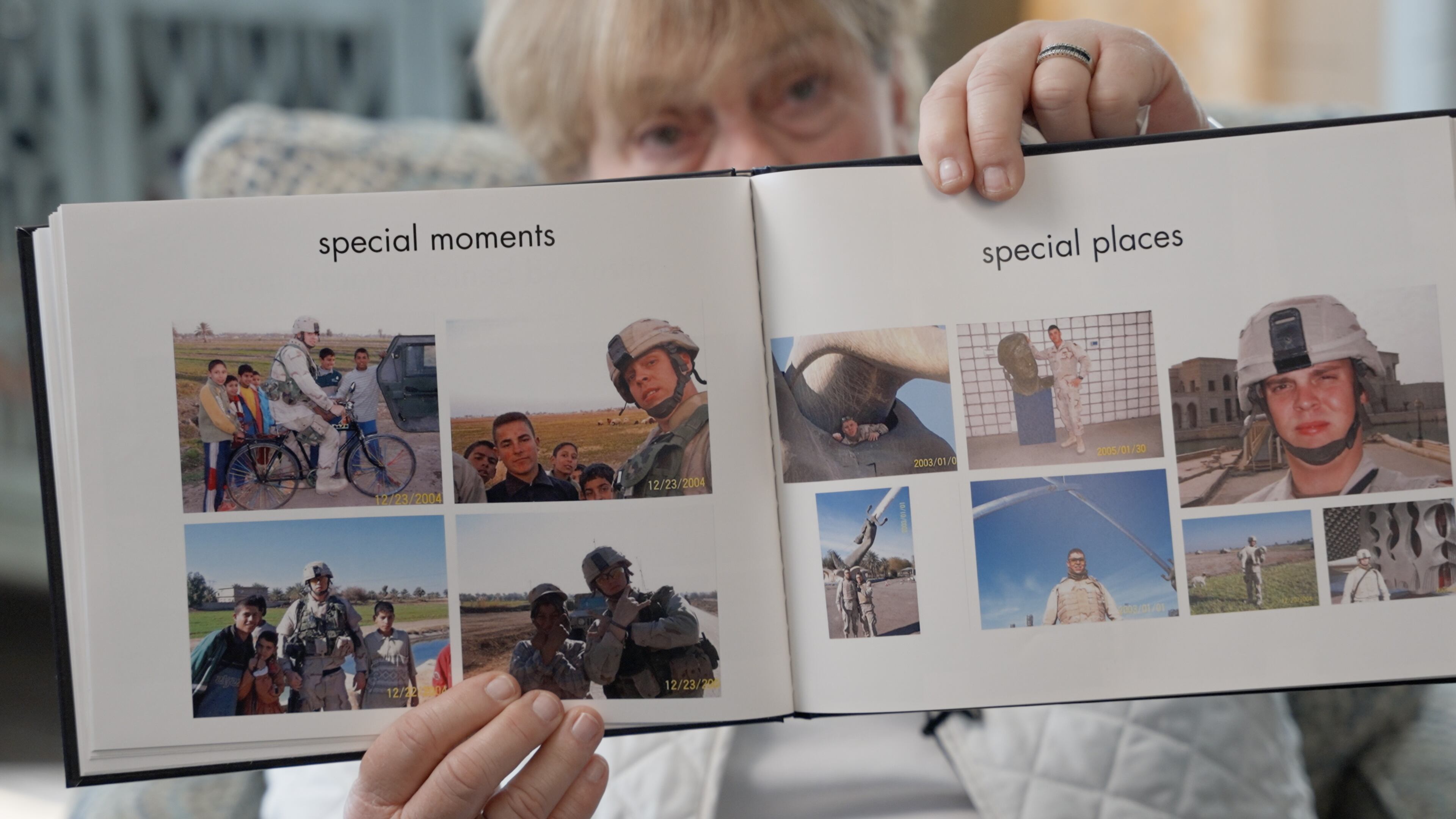
She found her why in connecting with other survivors at TAPS, other mothers who — just like her — knew the pain of experiencing the last time their child called out for them. Through their conversations, she learned that Austin was not the only service member to come home safe only to develop cancer or another strange, terminal illness. She learned the term “burn pit.”
Armed with this new information, Alice did what any mother would do. She spoke out. She snapped into action. If she couldn’t protect her Austin, she would tell his story in hopes that she could help other service members — other mothers’ sons. In her action and advocacy, she found her strength. She found purpose after loss.
In her mind she still hears Austin’s sweet voice, whispering softly, “Mama, I’m OK.” He reminds her it’s OK to smile; it’s OK to laugh again; and though he’s gone, she will always be Austin Daniel’s mom.
“I didn’t know about the exposure. I didn’t learn about burn pits until I started going to TAPS.”
— Alice Daniel
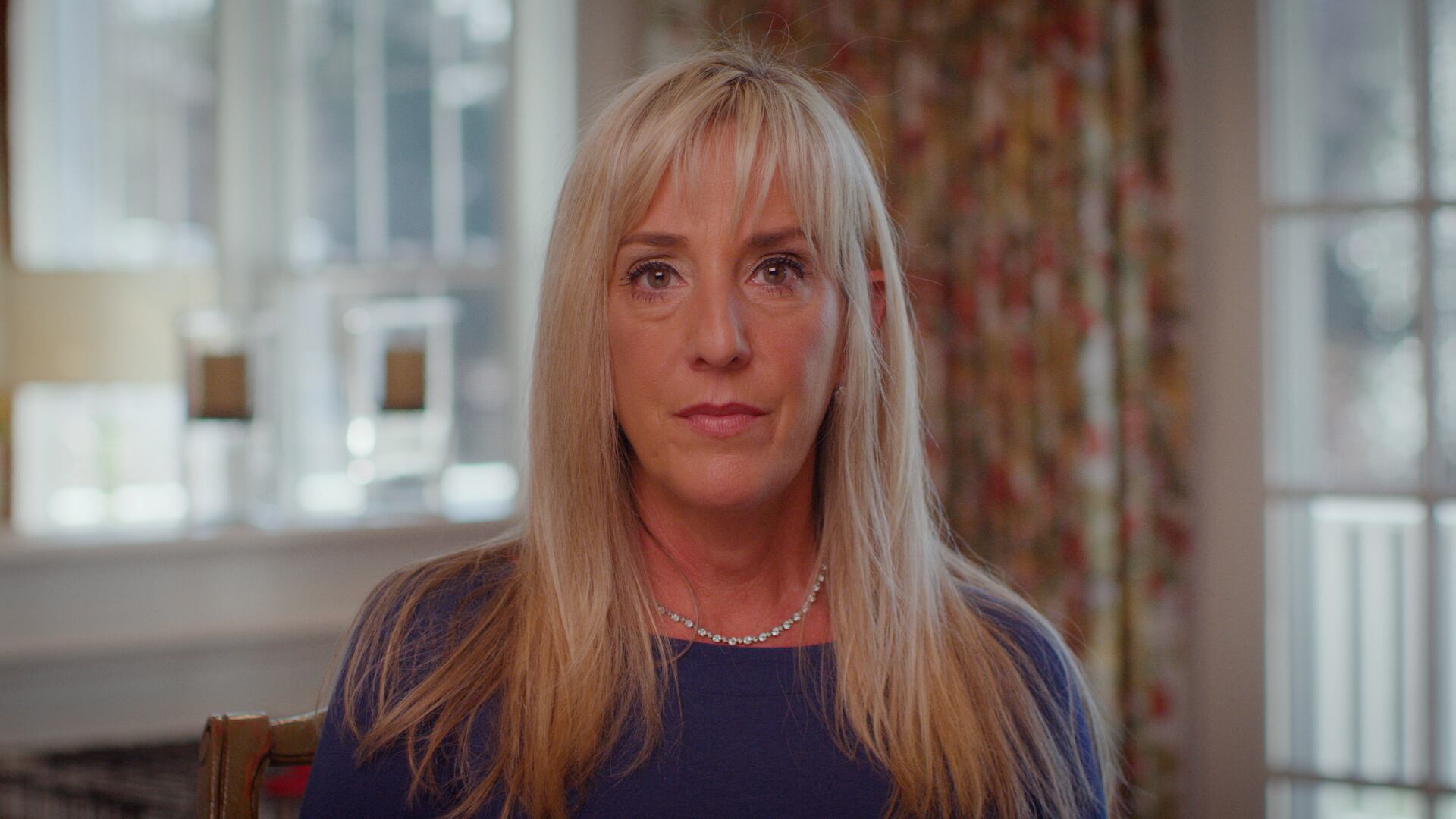
Coleen Bowman, Surviving Spouse of SGM Robert Bowman, U.S. Army
Quiet reflection, sharing regrets and wishes for the future, and savoring each “last” surrounded by loved ones are the bittersweet parting gifts of a terminal illness. It was in one of these sobering moments that Coleen’s husband, U.S. Army SGM Robert Bowman, spoke the words that would breathe new life into Coleen after his death.
“Promise me that you’ll tell my story. If this is how God is taking me, and I am the face of toxic exposures, I’m happy to do that for the men behind me. But tell my story,” he said, “so that we can help protect the others that are going to follow me.”
SGM Bowman died six months later — on a Sunday in January in 2013. He was 44 years old. SGM Bowman, or just “Rob” to Coleen, entered the U.S. Army a healthy young man. He served fearlessly; leadership came naturally; and, in Coleen’s words, “he was a picture of health,” before his second deployment to Iraq. He never failed an Army fitness test, and he’d never been on sick call in his 20 years of service. But, Rob returned from Iraq ill.
It took six months of medical appointments and misdiagnoses before Rob was diagnosed with inoperable, stage 4 cholangiocarcinoma — bile duct cancer. When the diagnosis finally came, Rob’s treating physician concluded his rare cancer was absolutely a result of environmental factors. Whether the cancer was a product of the open-air burn pit in Iraq that burned nearby day and night or the 10-plus IED strikes his armored vehicle endured, each stirring up particulate matter, remains unknown. But Coleen is sure that knowing what he was exposed to would have given Rob’s medical team — given Rob — a fighting chance. It would have bought them precious time. The cancer might have been caught sooner; it could have been operable. Very plainly, had they known earlier, Rob might still be alive today.

Instead, Coleen watched her husband gradually grow sicker over a span of months. More time, early detection, streamlined processes for care, and general awareness — all things that Coleen desperately wished for Rob — were not options for his fight. “That is why,” Coleen says, “my family and I are extremely grateful for the passage of the PACT Act. Simply put, this bill will save lives.”
Coleen was in attendance the day President Biden signed the PACT Act into law on Aug. 10, 2022. Rob’s words stuck with her even after his death, “Promise me you’ll tell my story.” For 20 years and four days, Coleen and Rob were a team. They faced military life together; they led together; and cared for their fellow soldiers and their families together. But, Coleen knew that she would have to face this last challenge alone. It was up to her alone to tell Rob’s story. She would be Rob’s “last gift of leadership” to the soldiers behind him.
Up to the very end, Rob remained positive, fearless, and in awe of his wife’s support. Shortly before his death, he shared, “She is the reason why I’m still here.”
Jan. 13, 2023, marked 10 years since Coleen lost Rob, but her advocacy and her determination to tell Rob’s story were a driving force behind the PACT Act. With Rob’s words as her guide, she continues what he started: protecting the soldiers behind him and caring for their families. She found her purpose after loss in telling Rob’s story, raising awareness for toxic exposure, and being a voice for improved care. She is still the reason Rob is still here.
“Promise me that you’ll tell my story.”
— SGM Robert Bowman, U.S. Army
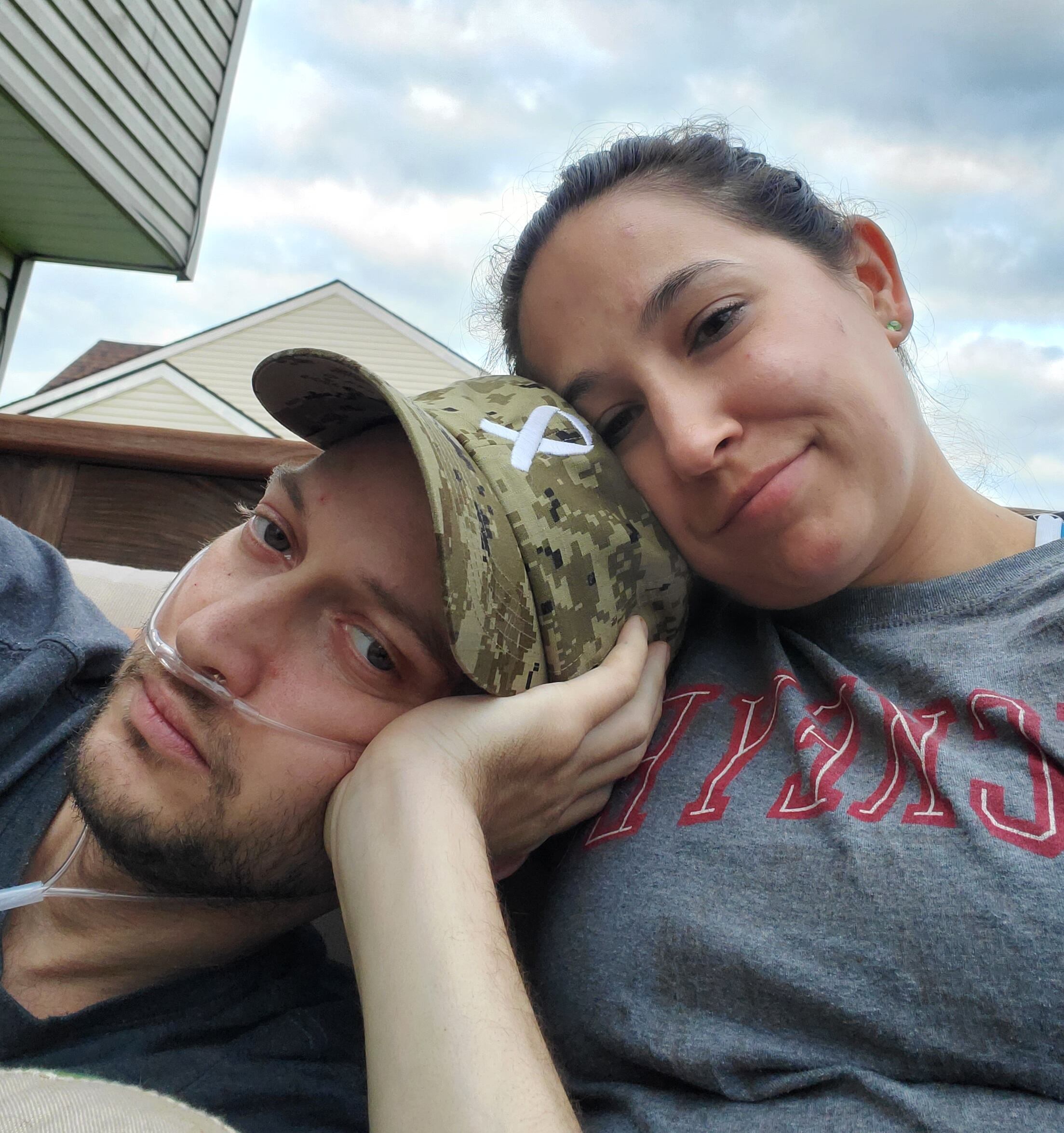
Danielle Robinson, Surviving Spouse of SFC Heath Robinson, Ohio Army National Guard
It happens in an instant at military homecomings across the country — a simple action that is easily overlooked. Guard down, relieved to be home, service members drop their packs before melting into the embrace of loved ones. They are safe; their battle is over.
Danielle Robinson felt that relief when she wrapped her arms around her husband, SFC Heath Robinson of the Ohio National Guard, upon his return from Kosovo in 2005 and Iraq in 2007 — each time assuming the danger had passed.
But Danielle couldn’t know a very real threat followed Heath home. Heath, couldn’t know that the burn pit that burned just yards from his guard post in Baghdad, Iraq, had already changed the course of his life. Instead, life returned to normal. Heath continued to be a model soldier — earning the title of Ohio National Guard NCO Soldier of the Year in 2012 and 2013, running a half-marathon in July of 2016, even setting his sights on Army Ranger School — until, suddenly, he couldn’t keep up. Danielle would come home at the end of the workday to find Heath asleep on the couch — fatigued from a typical day of work.
The exhaustion was followed by nosebleeds, blisters in Heath’s mouth and nose, trips to specialists, misdiagnoses, and — finally — on a Wednesday in March of 2017 a diagnosis of stage 4 adenocarcinoma — an extremely rare form of lung cancer caused by prolonged exposure to toxic substances. He was not expected to live longer than six weeks. The oncologist insisted Heath begin end-of-life preparations and aggressive treatments to buy precious time. It was time to pick up the pack he’d laid at their feet upon returning from his last deployment to battle, this time, for his life.
Heath bravely faced his cancer, but Danielle couldn’t get past the question of how. How did a healthy, nonsmoker with no history of lung cancer suddenly have just weeks to live? The oncologist’s question to Heath kept ringing in her ears, “What have you been exposed to?” Days later, after receiving a burn-pit article from a friend and asking Heath if he was around anything like that while deployed; she had her crushing answer. In both Kosovo and Iraq, Heath was in close proximity to burn pits — standing guard just 20-30 yards from one in Iraq for months.
Heath’s battle — punctuated with hospital stays, surgeries, and treatments — lasted three years. Alongside him, Danielle fought through treatment and benefit denials; she advocated for burn-pit accountability and comprehensive care for service members with toxic exposure-related illnesses.
Heath was just 39 years old when he lost his hard-fought battle against lung cancer on May 6, 2020 — laying his pack at Danielle’s feet a final time.
In honor of her husband, Danielle’s battle continued. She understood that someone had to fight for the families behind them. So, tired and grieving, with Heath’s pack in her hand now, she became that someone.
After more than two years of advocating and appealing to members of Congress, more than two years after Heath’s death, Danielle stood beside President Biden as he signed The Sergeant First Class Heath Robinson Honoring our Promises to Address Comprehensive Toxics Act of 2022, the PACT Act. Heath’s fight — her fight — immortalized in the name of legislation that would change the future of military-connected toxic exposures. It couldn’t save Heath, but it would save others.
As President Biden shared about Danielle on the day of the PACT Act signing, “Heath was a fighter to the very end. He didn’t know how to stop fighting, and neither did she.”
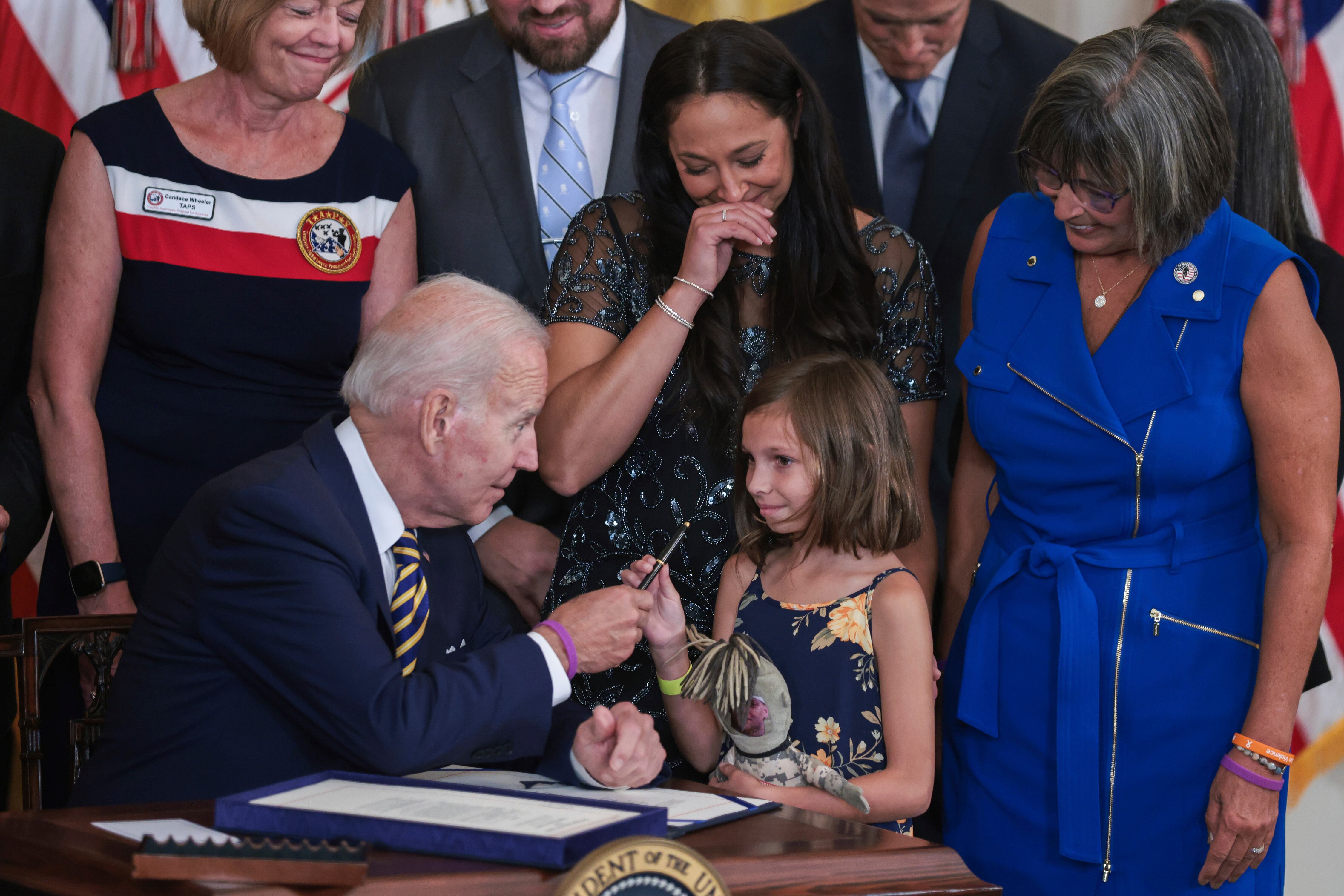
“It was his dying wish. He knew it was too late for him…He just wanted to know his brothers and sisters were going to be taken care of…”
— Danielle Robinson
